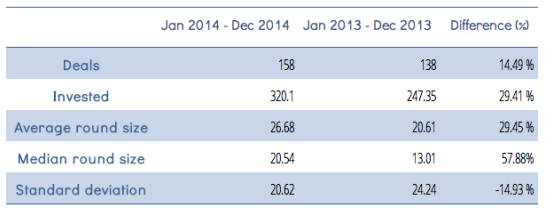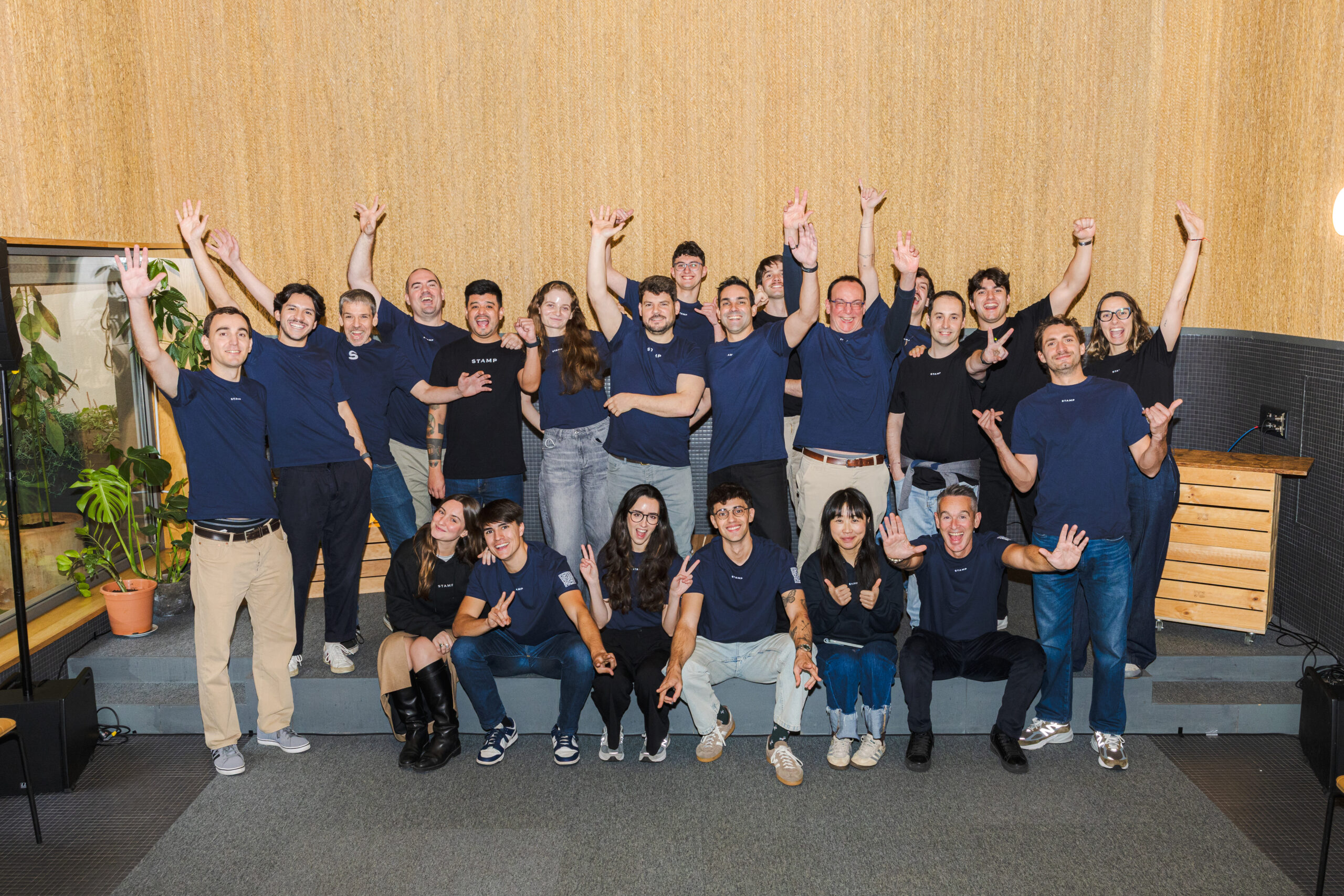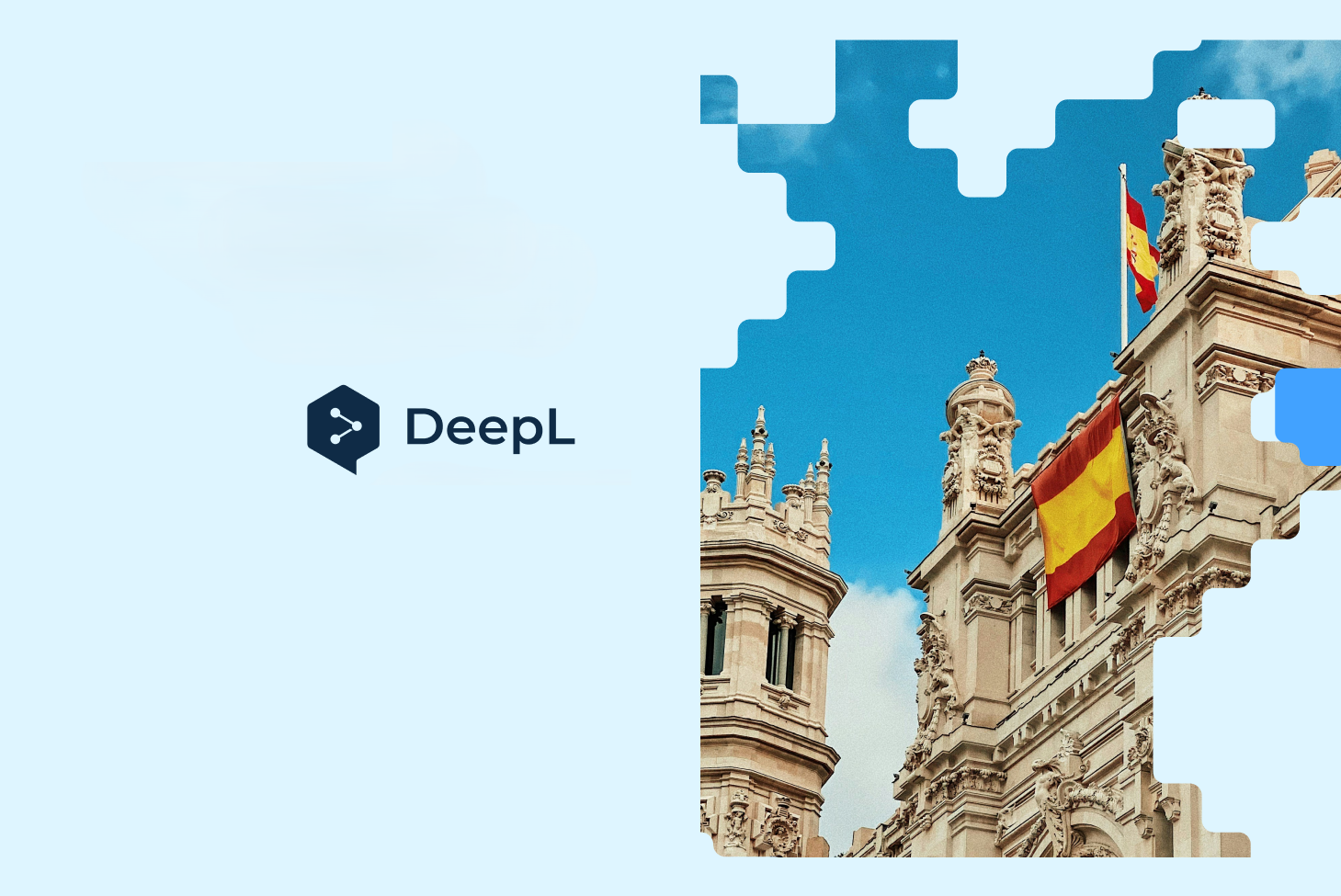Times have changed in Spain. While five to ten years ago the capital available to tech startups was restricted and dominated by a handful of firms, the local investment ecosystem has vastly changed over the past few years as more VC firms and business angels -both local and foreign- have joined the party.
As highlighted in our 2014 summary, the number of deals and euros invested into Spanish startups continues to increase at a fast pace -though still relatively slower in comparison to more mature ecosystems such as London, the Nordics or Berlin- and at the early stage most investors and entrepreneurs tend to agree that capital is not limited anymore.
“We see a lot of capital available at the early stage”, says Aquilino Peña from Kibo Ventures, the second most active fund in 2014 in Spain. “The equity gap that was previously present in post-FFF rounds has moved up, to 2 to 3 million euro rounds and higher.”
It’s not a surprise then, that many funds find themselves in a situation never seen before in this country, where entrepreneurs with a good track record and interesting projects are able to choose investors and not the other way around, as it used to happen in years past. “There are some investors that can’t stop complaining about the current situation while they don’t realize that things have really changed”, says Iñaki Arrola of Vitamina K. “Entrepreneurs are the ones who choose investors these days and there’s nothing wrong with that”.
While for many years one of the main debates within the local ecosystem was whether the number of interesting startups was higher (or not) than the capital available, most concede that the surge in capital has been accompanied by a similar growth in the number of projects available; although not all of the same quality and truly differential. “There’s a ton of capital and this has created an inflation in the number of projects, which makes choosing the good ones even harder. Entrepreneurs are more prepared, they know how to sell better and they have better business cases”, says Aquilino. “We also see a bunch of startups attacking the same markets with very similar approaches, which has one main consequence: many seed investors are going to lose their money”.
The attractiveness of the Spanish startup ecosystem has also brought many international investors to Spain’s shores. Most agree that the level of tech talent is on par with other European countries, and lower valuations than those found in Berlin, London, Paris or Tel Aviv have attracted more foreign VCs than ever in 2014.
“These are great times for entrepreneurial teams and their startups”, says Christopher Pommerening of Active Venture Partners, one of the oldest and most international firms in Spain. “International investors are scouting and investing in Spain like never before”.
Growth capital and higher minimum requirements
Several investors have complained in the past few months that valuations of local startups “are through the roof”. One may wonder whether those valuations are justified or if investors are simply complaining because they’ve never been in this situation before. Unsurprisingly, most investors Novobrief has talked to agree on the former.
With an abundance of capital and startups in the market, investors are currently being more cautious than ever while also looking at opportunities abroad and in higher stages. “We think it’s going to be key to focus on growth-stage companies, an area that traditionally hasn’t been covered by Spanish VCs”, claims Francisco Velázquez de Culler, founding partner of Axon Partners Group.
It’s precisely firms such as Axon Partners or Active Venture Partners that have been the most active abroad, closing deals all over Europe and, in the case of Axon, also in India and Latam. “We’re seeing many great opportunities in Latin America lately”, a VC recently told Novobrief. “And we’re probably going to focus our efforts there in 2015 while we also compete at the growth stage”.
Aquilino Peña echoes these sentiments, admitting that Kibo Ventures has become much more “demanding with their projects they participate in”.
Capital as a commodity?
Some traditional Spanish investors have long defended that they don’t add much value to the companies they invest in, as a form of recognizing the talent and work of their portfolio companies. However, some are starting to explore other areas to offer additional value beyond just capital.
A clear example of this are Axon, Active or Inveready, who long ago established other branches that focus precisely on that: value added services. “I wouldn’t consider many of the services often discussed as value added”, says Carlos Conti of Inveready. “I strongly belief that they are part of the nature of a VC and implicit in our work”.
This sentiment is mostly shared among firms with a strong international component, be it in the fund’s teams or in their investment focus. Michael Kleindl, founding partner of Seaya Ventures, claims that this is precisely one of the mission statements of the recently launched firm. “You as a VC have to do things different and create true value. I wouldn’t call capital a commodity, but we believe in helping not just on that, but also in other areas associated to the companies we back”.
A commoditisation of capital that Pommerening, of Active Venture Partners, thinks is already here and won’t stop: “Capital has become a commodity in our sector. I’d go even further to predict that investors providing only capital will face a very difficult time in the future”.
A future that, despite certain issues, seems bright for the Spanish ecosystem, its investors and its startups. The usual positive-minded Iñaki Arrola put it best when he told Novobrief that “we think the current landscape is super interesting. Lots of capital, lots of projects and, what’s most important, very good startups and entrepreneurs”. 2015 has just started, but it’ll be an interesting year for the Spanish startup ecosystem as a whole.
Photo | DGlodowska & xuuxuu











